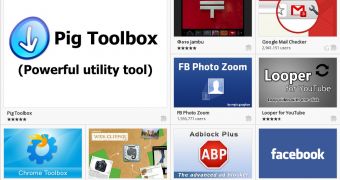The Google Chrome Web Store may be one of Google's most underrated and perhaps underexploited properties. Google Chrome has 310 million users. Many of those users have smartphones and already use apps on their mobile devices.
The trick is getting them to look at the Web Store and the web in general in the same way and start using and buying apps from the web just as they would on their phones. That's not an easy task and in the end, web apps are not exactly the same as mobile apps.
One thing that is unique about the Web Store is that it also includes extensions, in fact it's built on top of the extensions gallery that came before the apps.
Extensions are quite different from web apps, though they have more things in common than you'd think. At one end of the spectrum, you have extensions that alter or enhance the way Chrome works making your browsing faster, more efficient or just simpler.
At the other end, you have extensions that offer a lot of functionality by themselves or just be the local manifestation of a bigger service. These are very similar to web apps, the difference being that they're woven into Chrome, i.e. in the toolbar or with notifications.
It's a great thing then that extension developers now get the same love and the same opportunities as web app developers in that they're able to monetize their creations via ads.
The Next Web points out that Google has changed its extension ads policy and that developers are now able to use AdSense to help pay the bills. That's an interesting option for developers, but the tricky part is putting it in practice.
Most users will be put off by ads that are built into Chrome, one way or another, so the way developers treat their new freedom is critical.

 14 DAY TRIAL //
14 DAY TRIAL //